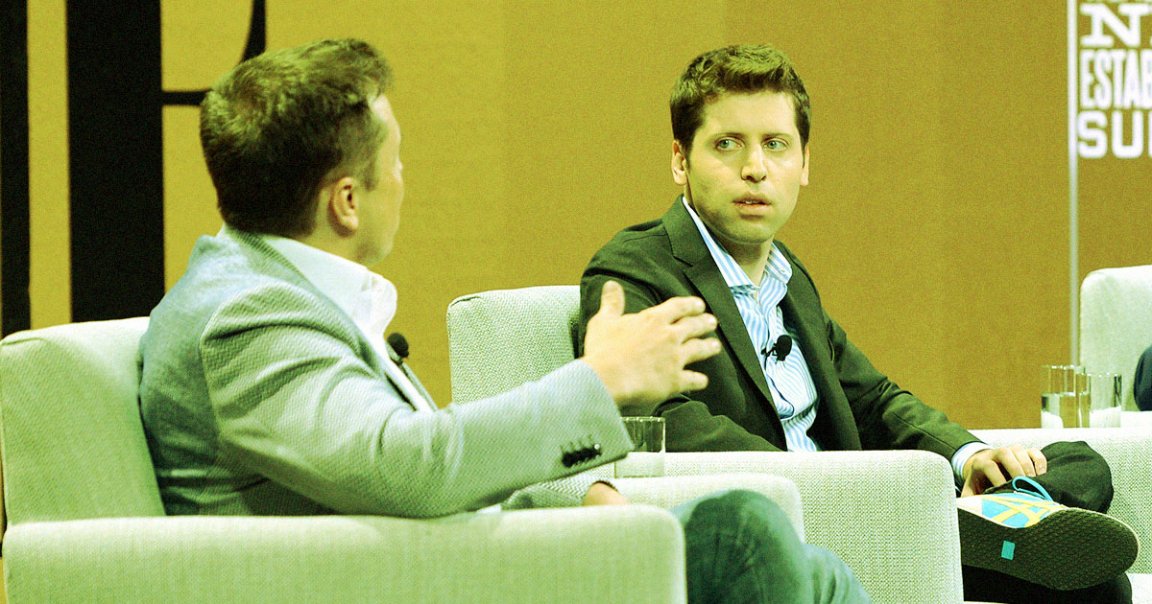
Little love has been lost lately between Twitter CEO Elon Musk and OpenAI, a company he co-founded but later abandoned due to what he says were ideological differences.
According to a recent report from Semafor, Musk went as far as to repeatedly attempt to take over the AI firm, but following an internal power struggle, the billionaire ended up walking away.
Since the release of OpenAI’s ChatGPT, Musk has repeatedly voiced his displeasure with OpenAI’s decision to transition from a not-for-profit company to a for-profit one back in 2018, in a series of public outbursts that have clearly come to the dismay of OpenAI CEO Sam Altman.
In a recent interview with podcaster and renowned Elon Musk fanboy Lex Fridman, Altman admitted that he “definitely grew up with Elon as a hero of mine,” a personal view that has clearly been challenged given Musk’s recent comments.
In the conversation, Altman alluded to Musk being “very visibly hurt” by news shows “bashing SpaceX and maybe Elon, too,” and how Musk struggled with having early space pioneers criticize his burgeoning private space company.
“Despite him being a jerk on Twitter whatever I’m happy he exists in the world,” Altman told Fridman, referring to Musk, “but I wish he would do more to look at the hard work we’re doing to get this stuff right, a little bit more love.”
Along similar lines, Altman says he’s been hurt by Musk’s comments. The billionaire CEO has repeatedly voiced his disdain for what OpenAI has become, calling it out in a February tweet as a “closed source, maximum-profit company effectively controlled by Microsoft,” a reference to the latter’s billions of dollars investment in OpenAI and its extremely popular AI chatbot tech.
“I’m still confused as to how a non-profit to which I donated [roughly] $100 million somehow became a $30 billion market cap for-profit,” Musk tweeted earlier this month, referring to OpenAI. “If this is legal, why doesn’t everyone do it?”
To Musk’s credit, OpenAI bears little resemblance to what its founders set it out to be. When it was launched back in 2015 by a number of co-founders including Musk, Altman, and billionaire investor Peter Thiel, OpenAI promised in its introductory statement to be “unconstrained by a need to generate financial return,” and that “our research is free from financial obligations.”
Fast forward seven or so years, and these values have largely dissolved into thin air, leaving a capitalist entity hellbent on signing multibillion-dollar deals with tech giants.
That kind of fundamental misunderstanding has clearly put Musk and Altman’s years-long business relationship on ice.
“Maybe some day I should hit back and maybe someday I will,” Altman said. “But it’s not like my normal style.”
Meanwhile, Musk is, perhaps unsurprisingly, on a war path to start his own AI venture that doesn’t, in his words, suffer from the “woke mind virus.” According to a February report by The Information, the CEO has been building a team to compete with OpenAI.
But given the immense head start OpenAI already enjoys, Musk has his work cut out for him — and that’s not to mention all of the existing headaches that are likely already occupying most if not all of his time.
In short, it’s a business relationship that turned sour that could spur a race to the future of AI — or, far more likely, generate a whole lot more mud-flinging.
More on Musk: Elon Musk Bragged He Was Going to Open Source Twitter’s Code, Now Furious That Someone Leaked It Online